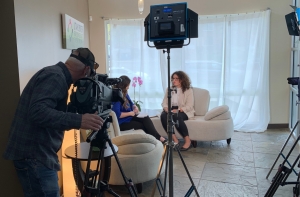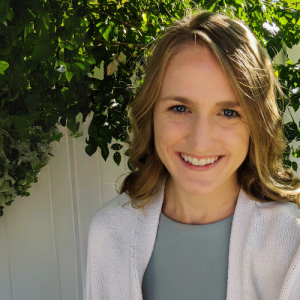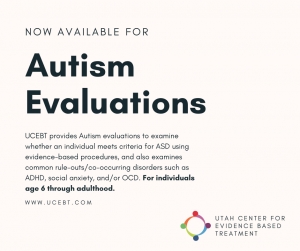Displaying items by tag: autism
Embracing Neurodiversity: Strengths-Based Approaches for Autism in Clinical Practice
As our understanding of autism continues to evolve, so too must our approaches to supporting autistic individuals in clinical settings. The upcoming virtual event, "Embracing Neurodiversity: Strengths-Based Approaches for Autism in Clinical Practice," is designed to equip mental health professionals with the knowledge and tools to do just that. Scheduled for Friday, September 6, 2024, from 9:00 a.m. to 1:00 p.m. MST, this workshop offers 4.0 Continuing Education (CE) credits, including an ethics component, for psychologists and other mental health professionals.
Why Attend This Workshop?
The concept of neurodiversity, which recognizes the inherent differences in how human minds perceive and interact with the world, has gained significant traction since its inception in the 1990s. This framework challenges the traditional medical model of autism that often pathologizes autistic behaviors and instead promotes an understanding that values diverse cognitive styles. However, integrating neurodiversity into clinical practice requires more than just a shift in perspective; it calls for concrete skills and strategies that mental health professionals can apply to better serve their autistic clients.
This workshop, led by Dr. Laura Rowley, Ph.D., a licensed clinical psychologist and Program Director for the Assessment and Testing Team at the Utah Center for Evidence Based Treatment (UCEBT), will provide attendees with these essential tools. Dr. Rowley brings a wealth of experience in assessing and treating autistic children and adults, and her expertise will guide participants through the principles of neurodiversity-affirming practice.
What You'll Learn
By attending this workshop, participants will:
- Understand how neurodiversity-affirming principles align with professional ethics: Learn to balance ethical considerations with the need to support autistic clients in a way that respects their unique neurocognitive profiles.
- Conceptualize cases from a neurodiversity paradigm: Shift your perspective to view autism through a strengths-based lens, enhancing your ability to tailor interventions to individual client needs.
- Enhance therapeutic relationships: Discover at least three strategies for building stronger connections with autistic clients, grounded in neurodiversity-affirming principles.
- Incorporate practical skills into evidence-based treatments: Learn how to adapt popular therapeutic approaches to better support autistic clients, ensuring your interventions are both effective and respectful of their neurodiversity.
Flexible Learning Options
For those unable to attend the live session, UCEBT offers a home-study option. Simply register for the free, non-CE version of the event, and sign up for the mailing list. Within two weeks of the live event, you'll receive information on how to purchase the home-study version for $60, allowing you to earn CE credits at your own pace.
Additionally, all registered participants will receive a recording of the event and the presentation slides, making it easier to revisit the material and apply what you've learned in your practice.
A Commitment to Ethical Practice
This workshop is more than just an opportunity to earn CE credits—it's a commitment to ethical, inclusive, and effective practice. As mental health professionals, it's our responsibility to continuously update our understanding and approaches, ensuring that all clients, including those who are autistic, receive the highest standard of care.
Join Us
Don't miss this chance to deepen your understanding of neurodiversity and enhance your clinical practice. Register today for "Embracing Neurodiversity: Strengths-Based Approaches for Autism in Clinical Practice" and take a significant step towards becoming a more inclusive and effective clinician.
For more information or to register, visit UCEBT's events page or contact Jennifer at or (801) 419-0139. We look forward to seeing you there!
Back to School Playbook
August can be a stressful time for neurodivergent students and their families as they ready themselves for a new school year, but it is also an opportunity to create new habits and supports to help students thrive. Join us for this upcoming event, "Back-to-School Playbook: Evidence-Based Strategies for Helping Neurodivergent Kids and Teens Succeed".
Date: Friday, August 19, 2022
Time: 10:00 a.m. - 12:00 p.m.. MST
Location: Virtual, via Zoom
Cost: $20.00
CEUs: 2.0 CEU pending approval by UPA, NASW-UT, UAMFT, and UMHCA.
Note: Everyone who registers will be emailed the recording, presentation slides, and CE Quiz within one week following the event.
About the presentation:
This talk will cover how the COVID-19 pandemic affected learning for individuals with autism and Attention-Deficit/Hyperactivity Disorder, and how students, parents, and teachers can work as a team to move forward with practical strategies for success.
Topics will include helpful accommodations in Section 504 and Individualized Education Plans, evidence-based classroom strategies that promote engagement, and skills to enhance relationships for students with their parents, teachers, and peers. Information includes tailoring intervention to the student’s development level, from children in elementary school to teens transitioning to college.
Throughout the 2 hour presentation, there will be space for questions and deeper discussion through attendee participation. There are no known risks to attendees or patients. As with all clinical work, attendees should be thoughtful about applying assessment strategies and obtain appropriate training and supervision.
Learning Statement:
At the conclusion of this presentation, attendees should be able to identify how ADHD and Autism affects school functioning and list practical strategies for parents, teachers, and students to enhance academic performance.
Learning Objectives:
- Describe how characteristics of ADHD and Autism affect school functioning;
- List at least 4 school-based strategies to enhance engagement in the classroom and homework completion;
- List at least 4 skills to enhance social relationships for students with ADHD and autism; and,
- Describe at least 4 accommodations for neurodivergent students.
References:
Adams, D., Young, K. & Keen, D. Anxiety in Children with Autism at School: a Systematic Review. Rev J Autism Dev Disord 6, 274–288 (2019). https://doi.org/10.1007/s40489-019-00172-z
ADDitude. Success at School for Children with ADHD and Learning Disabilities. 2012. Additudemag.com.
Davis, N.O., Kollins, S.H. Treatment for Co-Occurring Attention Deficit/Hyperactivity Disorder and Autism Spectrum Disorder. Neurotherapeutics 9, 518–530 (2012). https://doi.org/10.1007/s13311-012-0126-9
DuPaul GJ, Chronis-Tuscano A, Danielson ML, Visser SN. Predictors of Receipt of School Services in a National Sample of Youth With ADHD. Journal of Attention Disorders. 2019;23(11):1303-1319. doi:10.1177/1087054718816169
Keen D, Webster A, Ridley G. How well are children with autism spectrum disorder doing academically at school? An overview of the literature. Autism. 2016;20(3):276-294. doi:10.1177/1362361315580962
Mayes, S.D., Waschbusch, D.A., Calhoun, S.L. et al. How Common are Academic Overachievement and Underachievement in Children with Autism or ADHD?. J Dev Phys Disabil 32, 775–783 (2020). https://doi.org/10.1007/s10882-019-09719-8
Rando, Heather; Huber, Mary J.; Oswald, Gina R.. An Academic Coaching Model Intervention for College Students on the Autism Spectrum. Journal of Postsecondary Education and Disability, v29 n3 p257-262 Fall 2016
Tamm, L., Duncan, A., Vaughn, A. et al. Academic Needs in Middle School: Perspectives of Parents and Youth with Autism. J Autism Dev Disord 50, 3126–3139 (2020). https://doi.org/10.1007/s10803-019-03995-1
Ziegler Dendy, C., &Bailey E. The Ultiamte ADHD Toolkit for Parents & Teachers. Additu.de/school
About the presenters:
Laura Rowley, PhD is a licensed clinical psychologist. Laura obtained her doctorate from Wayne State University. She completed her APA-accredited internship and postdoctoral fellowship at Primary Children’s Hospital. Laura is currently the Program Director for the Assessment and Testing Team at Utah Center for Evidence Based Treatment, where she specializes in testing services for neurodiverse children and adults.
Nick Schollars PsyD is a licensed clinical psychologist. Coming from Newberg, Oregon, he completed his doctorate at George Fox University and his APA Internship at Saint Elizabeths Hospital in Washington, DC. He recently moved to Salt Lake City to join the Utah Center for Evidence Based Treatment with a specialty in assessment and testing.
Program Notices:
Conflicts of Interest: None noted.
Commercial Support: None.
We're on TV!
In honor of Autism Awareness Month for the month of April, our autism specialist, Dr. Laura Rowley, will discuss the misdiagnosis of autism on KUTV’s Fresh Living Segment.
Dr. Rowley will be answering these questions:
- Why is autism commonly misdiagnosed?
- What could individuals look for that may actually reflect underlying autism?
- What help is available for individuals who may wonder if they or a loved one are on the autism spectrum?
Tune in on the following stations:
- Between 1-1:30p KUTV
- Between 2-2:30p KMYU
- Between 3:30-4p KJZZ
For those of you who cannot be in front of a TV on Friday, you can watch live at this link: https://kutv.com/watch
Autism Awareness Month!
In recognition of April as Autism Awareness Month, we have compiled our favorite resources related to autism. Our resource list includes various organizations, books, videos, and podcasts. We have topics such as: ASD and LGBTQA+, Neurodiversity in the Workplace, local and national resources for families, research and trainings for mental health professionals, and a Q&A video from our resident Autism specialist, Dr. Laura Rowley. Check out this list of resources here: https://ucebt.com/resources/autism If you see something we missed, please let us know by emailing
Kalee Gross, Psy.D.
Autism
Information and Research about Autism Spectrum Disorder
Research and Advocacy Groups
The Asperger/Autism Network (aane.org): helps people with autism spectrum and neurodiverse profiles build meaningful, connected lives by providing individuals, families, and professionals with information, education, community, support, and advocacy
Spectrum (Spectrumnews.org): provides news about the latest autism research
Autism Speaks (autismspeaks.org): Helps individuals with autism and families through advocacy and support; increasing understanding and acceptance of people with autism; and advancing research into causes and better interventions for autism spectrum disorder and related conditions.
Autistic Self-Advocacy Network (autisticadvocacy.org): ASAN works to empower autistic people across the world to take control of their own lives and the future of their common community, and seek to organize the autistic community to ensure their voices are heard in the national conversation about Autism.
Autism Council of Utah (autismcouncilofutah.org): Advocacy group in Utah. Their page outlines several resources for families and professionals. They also link to community events aligned with their mission.
International Society for Autism Research (autism-insar.org): Scientific and professional organization devoted to advancing knowledge about autism. Their website includes past posters and presentations from events outlining the latest research
Organization for Autism Research (researchautism.org): organization founded and led by parents and grandparents of children with autism with a focus on awareness and advocacy
Synapse (autism-help.org): A website with fact sheets complied by mental health professionals about life skills, education, parent support, and resources for adults
SPARK (sparkforautism.org): landmark autism research project connecting researchers with autistic individuals and creating a community for autistic individuals and their families.
Lived Experiences
Hendrickx, S. (2015). Women and Girls with Autism Spectrum Disorder: Understanding Life Experiences from Early Childhood to Old Age
Attwood, T., Grandin, T., et al. (2006). Asperger’s and Girls: World-Renowned Experts Join Those with Asperger’s Syndrome to Resolve Issues That Girls and Women Face Every Day!
Grandin, T. (2013). The Autistic Brain: Helping Different Kinds of Minds Succeed.
Finding Mikey podcast (https://www.facebook.com/FindingMikeyPodcast/) Describes one family’s journey with autism, sensory processing disorder (SPD), attention deficit hyperactivity disorder (ADHD), and Asperger’s syndrome. They share their experiences as a platform for inspiring others and providing helpful strategies for coping with these disorders. Episodes contain personal accounts and expert advice from doctors, lawyers, advocates, and other influential members of the community.
ASD and Intersectionality
Twainbow (twainbow.org): education and peer support for autistic individuals who also identify as LGBTQA+
Autism Speaks LGBTQ guide: https://www.autismspeaks.org/lgbtq-information-and-resources
AANE information for gender diverse individuals and gender identity support groups https://www.aane.org/topics/adults/lgbtq/
Autism in Black (autisminblack.org): Autism in Black aims to provide support to black parents who have a child on the spectrum, through educational and advocacy services. Also a podcast.
Information for Spanish-speaking families: https://www.autism-society.org/en-espanol/
Indian Health Service: Federal Health Program for American Indians and Alaska Natives- autism resources https://www.ihs.gov/icp/autism/
Services and Resources for Autistic Individuals and Families
National Resources
The Asperger/Autism Network (aane.org): Provides online support groups for individuals across age ranges, parents of young children and teens, parents of adults and more.
ADDitude -- Focus on ADHD, but also good information on ASD and other neurodevelopmental disorders because they often present together.
Autistic Self Advocacy Network -- ASAN works to empower autistic people across the world to take control of their own lives and the future of their common community, and seek to organize the autistic community to ensure their voices are heard in the national conversation about Autism.
College Consensus -- A resource for college options for students on the autism spectrum.
How to Make Sensory-Friendly Homes with Autism in Mind
Utah Resources
Namasté Center for Healing - Neurofeedback for Autistic, ADHD Individuals with Sensory Issues, Emotional Dysregulation, and more. Neurofeedback helps to rewire your brain. There is a lot of research that this amazing holistic treatment can reduce depression, anxiety, help with communication and sensory issues.
Autism Council of Utah -- Advocacy group in Utah. Their page outlines several resources for families and professionals. They also link to community events aligned with their mission.
Brigham Young University Autism Connect -- Provides ASD testing, resources for families, and conducts ongoing research. They have a current research participation opportunity for adolescents and women who may be on the spectrum. (https://education.byu.edu/autism/research-opportunity-for-girls-and-women)
University of Utah Autism Spectrum Disorder Clinic -- Provide ASD assessment, social skill and recreational groups for kids, individual/family therapy, Parent-Child Interaction Therapy, Behavior intervention, school consultations, Early Intervention, research participation, and parent training
Spectrum Academy -- Spectrum Academy is the premier charter school in Utah for students with high functioning autism and others who would benefit from our unique learning environment. They provide small class sizes, with individualized instruction and innovative social skills curriculum. They help students reach their fullest potential academically, socially, and emotionally, leading to productive and successful futures.
Scenic View Academy -- A non-profit school in Provo for people with Autism
Matt’s Place -- Matt’s Place is a non-profit center focused on helping families and individuals with social and behavioral struggles, and those on the Autism Spectrum.
The Adult Autism Center (adultautismcenter.org): Gives resources for socialization, recreation, development, and involvement. Provides supports for daily living skills and vocational training.
Utah Parent Center (https://utahparentcenter.org/): Special education and advocacy service that provides information on how to access services for individuals with disabilities and can help families navigate the school system
Autism Learning Partners (website) (brochure) -- A national company with regional operations providing Center- and Home-Based ABA Therapy; Early Intervention; Diagnostic Services; Social Skills Program; Parent Collaboration; Speech, Occupational, & Physical Therapy; Telehealth Services; Comprehensive ABA, and Focused ABA.
Books & Media
Unmasking Autism: Discovering the New Faces of Neurodiversity by Devon Price, Ph.D.
But you don't look autistic at all by Bianca Toeps
Aspergirls: Empowering Females with Asperger Syndrome by Rudy Simone
Autism in Heels: The Untold Story of a Female Life on the Spectrum by Jennifer Cook O'Toole
Overcoming Autism: Finding Answers, Strategies, and Hope That Can Transform a Child’s Life, by Lynn Kern Koegel and Claire LaZebnik
A Parent's Guide to High-Functioning Autism Spectrum Disorder, Second Edition: How to Meet the Challenges and Help Your Child Thrive, Edition 2 by Sally Ozonoff, Geraldine Dawson, and James McPartland
Understanding Autism in Adults and Aging Adults: Improving Diagnosis and Quality of Life by Theresa Rega
Simone, R. (2010). Aspergirls: Empowering Females With Asperger Syndrome. London: Jessica Kingsley.
The Autism Show podcast: http://autismshow.org/
Autism Quality of Life podcast: https://www.autismqualityoflife.com/
Girls Growing Up on The Spectrum: What Parents and Professionals Should Know About the Pre-Teen and Teenage Years by Shana Nichols
Neurodiversity in the Workplace
UCEBT's Assessment and Testing Program Director, Laura Rowley, Ph.D., recently presented this lecture on Neurodiversity in the Workplace: Strategies to Support Inclusivity. This presentation discusses ADHD and Autism, the strengths and barriers of each in the workplace, and how to facilitate enhanced inclusion and communication.
Resources & Trainings for Professionals
Sunfield Center for Autism, ADHD, and Behavioral Health -- Provides online workshops on ASD assessment tools like the ADOS-2 and ADI-R, as well as trainings on topics related to intervention, such as ASD and sexuality, and supporting adolescents with ASD transition to adulthood.
Vanderbilt Treatment and Research Institute for Autism Spectrum Disorders -- Provides online workshops on ASD assessment tools like the ADOS-2, as well as trainings/resources for educators, community professionals, and pediatric care providers. They have a series dedicated to delivering services via telemedicine for parents, educators, and clinical professionals (https://vkc.vumc.org/vkc/triad/covid19/)
Autistic Self Advocacy Network -- Engage with autistic voices to be effective allies.
International Society for Autism Research (autism-insar.org): Scientific and professional organization devoted to advancing knowledge about autism
ADDitude Provides free online webinars on topics related to ASD and neurodivergence. Professionals can register to attend live or receive links to the presentations.
Autisminblack.org for information on autism in black communities and the intersection of autism and culture. Opportunities for professional talks.
Recent Q&A from one of our psychologists
This is the full presentation from Dr. Laura Rowley regarding the diagnosis of Autism Spectrum Disorder (ASD).
Autism Evaluations: Adults and Children
UCEBT is taking new clients for Autism evaluations to examine whether an individual meets criteria for ASD using evidence-based procedures, and also examines common rule-outs/co-occurring disorders such as ADHD, social anxiety, and/or OCD. For individuals age 6 through adulthood.
Our autism testing is not exclusively for children.
ADHD and ASD can be diagnosed in adulthood. Many adults may be experiencing chronic difficulties with meeting job expectations, organizing tasks, completing household chores, engaging in daily living activities, remembering obligations, and forming/maintaining healthy relationships. Often adult clients come to us with prior diagnoses of mood, anxiety, or personality problems, and are frustrated that previous treatments have been unsuccessful in helping them meet their goals.
Through assessment, we can determine whether there may be evidence for a missed ADHD or Autism diagnosis that accounts for pervasive lifelong problems.
Read more about Autism Testing for children and adults at UCEBT.








